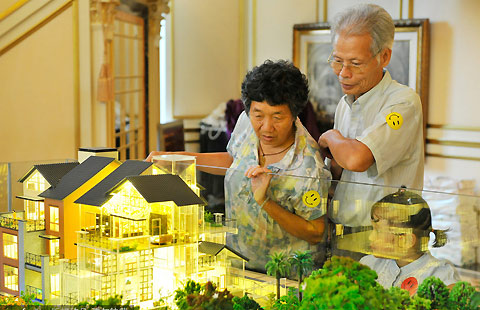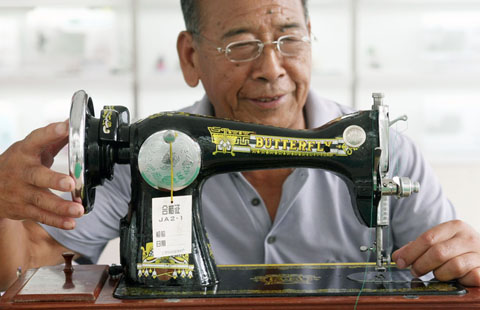China advances property tax reforms amid slowdown
(Xinhua) Updated: 2014-08-11 09:15HAIKOU - The cooling of China's property market is likely to encourage authorities to speed up property tax reforms, which many believe will play a key role in putting the sector back on track.
A legislation plan to establish a property sector taxation system will be submitted to the Standing Committee of the National People's Congress, China's top legislature, later this year, Jia Kang, director of the Research Institute for Fiscal Science under China's Ministry of Finance, said at a forum on Friday.
|
 |
 |
The absence of such a system has enabled many Chinese to capitalize on the country's over-heated property market, making it a major source of public complaints over recent years.
Believing that there is not much room for a sharp appreciation amid the current market downturn, Zhao Zhengguo (not his real name) has this year sold two of several apartments he owned in Beijing in order to secure cash.
"It will not be long before the property tax spreads over the country. The tax itself is not a problem, but it will make housing less reliable as an investment choice," said Zhao, who rose from a wage earner to a billionaire thanks to his housing investment.
China launched property taxes in Shanghai and Chongqing on a trial basis in 2011 to tighten its property market control. It was expected that the trials would be expanded to cover more regions, but the expansion was postponed due to the lack of legal basis.
However, in a reform plan approved by the Third Plenary Session of the 18th Communist Party of China Central Committee last year, the country vowed to accelerate the legislation of taxes in the property sector.
This will involve a basket of tax reforms, including a real estate tax levied on homeowners and a land tax on property developers, said Zhuang Jian, a senior economist at the Asian Development Bank.
- Robots getting serious in China
- Dane puts heart, passion and soul into shoe business
- All in Tuning 2014 expo in Beijing
- China's Internet giant Baidu warned for porn offense
- Top 10 home appliance makers in China
- Transformers of industrial landscape
- Shanghai GM recall over safety belt defects
- China's consumer confidence rebounds in July















